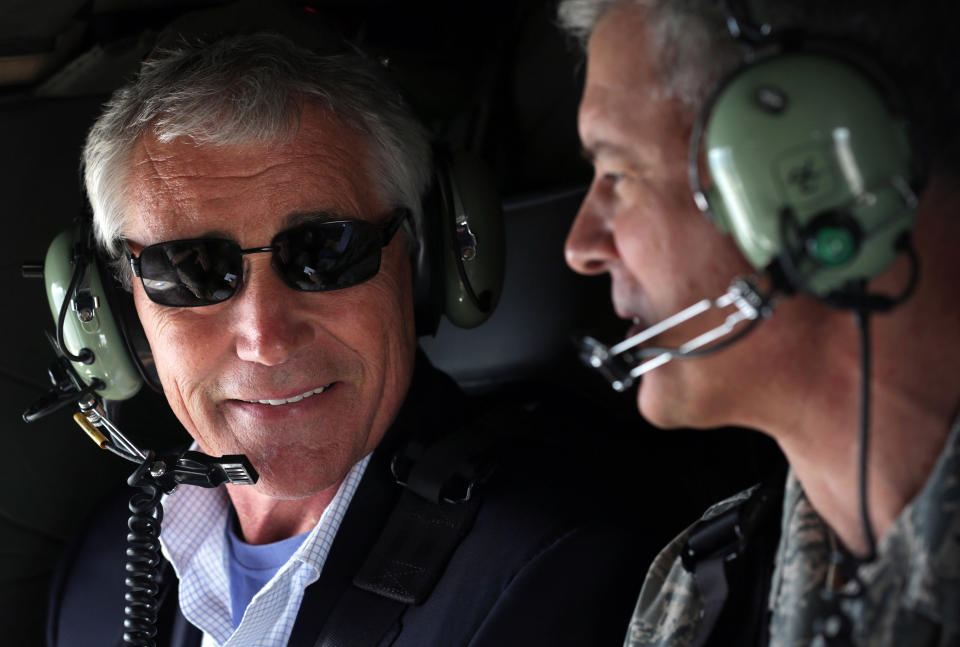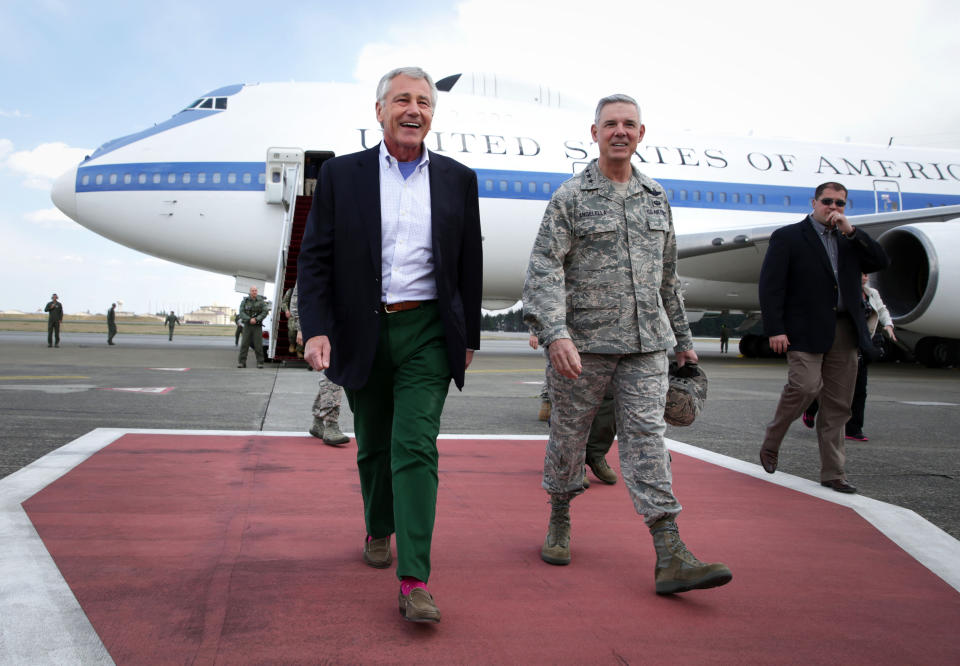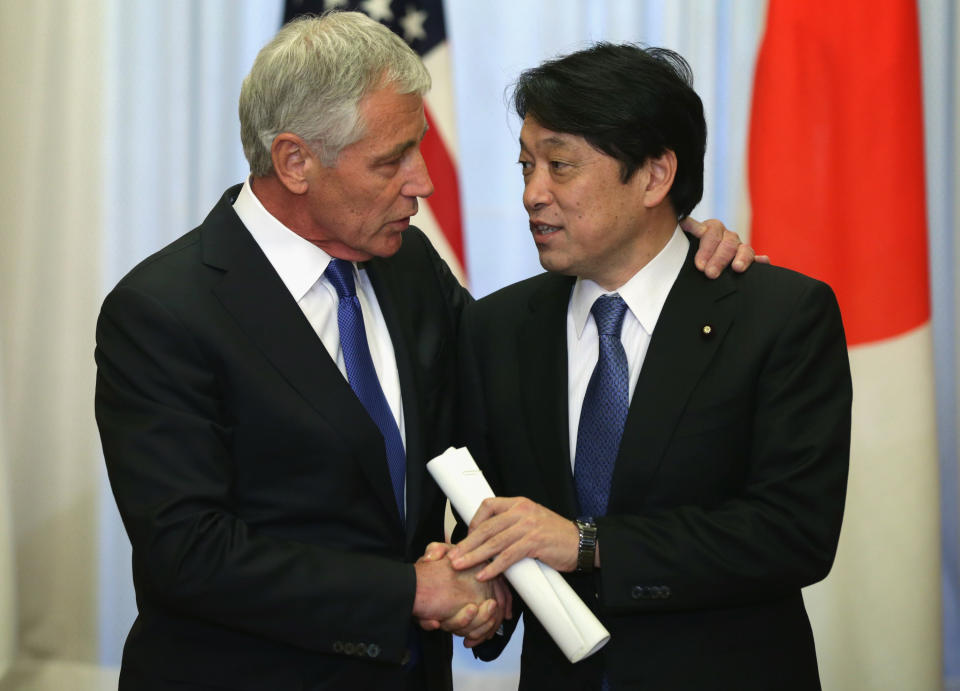Hagel: US strongly committed to protecting Japan
YOKOTA AIR FORCE BASE, Japan (AP) — Against the backdrop of Russia's takeover of Ukraine's Crimean region, U.S. Defense Secretary Chuck Hagel said Saturday he will convey to Japanese leaders that the U.S. is strongly committed to protecting their country's security.
Hagel said it is understandable that countries are concerned by the unfolding events in Ukraine, where Russian troops remain massed along the border. The issue reverberates in Asia where China, Japan and others are in bitter territorial disputes, including over disputed islands in the East China Sea.
"It's a pretty predictable, I think, reaction, not just of nations of this area and this region but all over the world," Hagel told reporters traveling with him to Tokyo.
"I think anytime you have a nation — Russia in this case — try to impose its will to refine and define international boundaries and violate the territorial integrity and sovereignty of a nation by force, all of the world takes note of that."
Assistant U.S. Secretary of State Daniel Russel also said this past week that Russia's annexation of Crimea heightened concern, particularly among some Southeast Asian nations, about the possibility of China "threatening force or other forms of coercion to advance their territorial interests."
The U.S. has said it takes no side on the question of the disputed islands' sovereignty, but it recognizes Japan's administration of them and has responsibilities to protect Japanese territory under a mutual defense treaty.
Hagel said the U.S. wants the countries in the region to resolve the disputes peacefully. But he added that the United States would honor its treaty commitments.
There is no "weakness on the part of the United States as to our complete and absolute commitment to the security of Japan," Hagel said. "So I don't think there is any indication or any evidence that we're doing anything but strengthening our commitment to the security of Japan."
Asked whether the inability of the U.S. and its international partners to stop Russia might give Asian nations reason for worry, he said the allied response for Ukraine has been significant. He said there is no military solution to the problem, but diplomatic and economic penalties against Russia have isolated Moscow and "there will be consequences for that."
Speaking to more than 150 U.S. and Japanese troops in a hangar at the base, Hagel noted that this is his fourth trip to the region. The visits are part of an effort to make clear that America is a friend and partner, and reinforce "our continued commitment to our partnerships, our friendships and our treaty obligations."
Hagel's trip to Japan comes at the close of a three-day meeting in Hawaii with defense ministers from Southeast Asian nations. He will later travel to China, where he said he looks forward to talks about expanding military cooperation as well as the chance to air differences on the disputes.
Hagel said he would encourage Chinese leaders to abide by the international code of conduct.
China has expressed displeasure about recent moves by the U.S. to provide additional military assets and support to Japan.
Last October, the U.S. and Japan agreed to broad plans to expand their defense alliance, including plans to position a second early warning radar there by the end of this year. There is one in northern Japan and the second one would be designed to provide better missile defense coverage in the event of a North Korean attack.
The U.S. will begin sending long-range Global Hawk surveillance drones to Japan this month for rotational deployments, and they are intended to help step up surveillance around the Senkaku islands, a source of heated debate between Japan and China which both claim the remote territories.
In its latest symbolic gesture of support for Japan, the U.S. decided not to send a warship to participate in a Chinese naval parade as part of the Western Pacific Naval Symposium because the Japanese were not invited. U.S. military leaders, including the Navy's top officer Adm. Jonathan Greenert, will attend the symposium and view the ship review.





